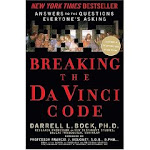Read Isaiah 1:7-9
We have seen how Israel has been compared to disobedient and evil children; we have seen how they have been compared to an illness struck person. Now we see in these verses the reality…
Is this passage a prophecy of future occurrences? Or is it referring to past and current troubles? Albert Barnes believes it refers to the times of trouble before Uzziah but John Gill maintains that it is prophetically speaking of the destruction of Jerusalem by the Romans.
Whichever it may be (and I tend to agree with Barnes on this one), the main point is that we move away from the examples and turn here to the reality. Whereas the Lord has referred to a body infected with wounds and bruises, here he clearly identifies Judah. “Your” country and “your” cities are the object of God’s wrath…of His judgment.
Think about it: with what joy and exultation must Israel have entered the land of Promise so many years before. Oh what a joy to walk with the Lord and see with one’s own eyes the mighty works of God on behalf of the nation. But as we are told in Judges 2:10, “another generation arose after…who did not know the Lord nor the work which He had done for Israel.”
Contrast the wonder with which the Israelites entered Canaan, secure in the knowledge that the Lord walked with them; contrast that with the terrible words we read here in verse 7. What has caused this drastic change? Disobedience.
Sometimes we too encounter times of chastisement from the Lord. It would be well for us to think about our own walk before we dare to ask God why He allows certain things to come into our lives. Do we walk in obedience? I have heard people compare their own afflictions to those of Job (I have done so myself), yet in doing so, can we truly claim to be the spiritual equals to a man like Job? A man whom God specifically pointed out to Satan as an upright man? I understand that complete obedience to God is a huge challenge because we still dwell in the body of death, but let us strive to live obediently as much as possible…not to avoid punishment but because we love our God. And then, when we experience tribulation, we can boldly proclaim that we suffer evil and praise God for it. The alternative is to suffer chastisement for wounding the heart of our precious Savior through our sin.
In verse 8 we read of the daughter of Zion’s predicament…meaning the city of Jerusalem (see John Calvin’s commentary on this, also John Gill.)
Here the city is compared to the lonely place where the watchmen stood, whether in the vineyard or in the fields. The hut, or cottage, is the place where the workmen store their tools. It is where shelter from the elements is taken. It is a place of refuge but also a place of loneliness. The city of Jerusalem, then, is likened to this poor place.
The capitol of the chosen nation, likened to the meanest of buildings!
John Calvin wrote the following: “This may be explained in two ways; either that the whole country will be wasted, with the solitary exception of the city, which shall be left standing like a cottage, or that the city itself will be destroyed. The former interpretation is adopted by the Jews, and they understand this passage to relate to the siege of Sennacherib; but I think that it has a wider signification, and embraces other calamities which followed afterwards. This may indeed refer to the neighboring country, from the misery and devastation of which it was impossible but that the city should sustain much damage; but I consider the Prophet’s meaning to be, that the evils of which he speaks shall reach even to the city itself, until, broken and ruined, it shall wear the aspect of a mean cottage”
Again, whether this speaks of past or future calamities (or both!), one of the things we must always bear in mind is that God has made promises and He will keep them. The Jews are a chosen people, and in the new covenant, the elect of all the nations are His royal priesthood. So when times are tough and we encounter troubles, even those of our own doing, we need to remember that God is the covenant keeper of our relationship (see Genesis 15). And so, we now read some beautiful words in the midst of this terrible passage:
“Unless the Lord of hosts had left to us a very small remnant, we would have become like Sodom, we would have been made like Gomorrah.”
Wow. Praise God for His mercy and grace! (See Lamentations 3:22)
This verse touches on His sovereignty and His special love for the elect of Judah. We all know what became of those cities mentioned, we all know of the disgusting practices of its inhabitants…yet were it not for the sake of His remnant, Judah would suffer the same fate!
Let us think about ourselves for a moment. Do you not realize that God’s judgment upon this sinful world we live in today is also deferred for the sake of His elect? Just as Paul was told not to be afraid because God had His people in the city (Acts 18:9-11), so we are not to fear witnessing for His sake in our time. And witness is something we must do, because we love the Lord and want to see the lost sheep brought into the fold.
Above all, however, we should remember the long-suffering of the Lord when we wonder why He allows evil to endure. People act as if evil is some force of its own that stands in opposition to God, but this is not the case. Evil is sin and disobedience practiced by every man, woman and child on the planet! So why does God allow evil? Because of the great love He has for His elect. Until they are all gathered up, for their sake He will withhold His judgment. Let us, then, take this time to declare His goodness and His mercy to the entire world, that those who have ears to hear will listen and respond.





No comments:
Post a Comment